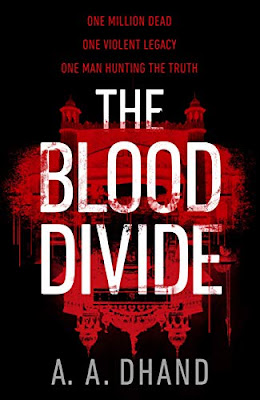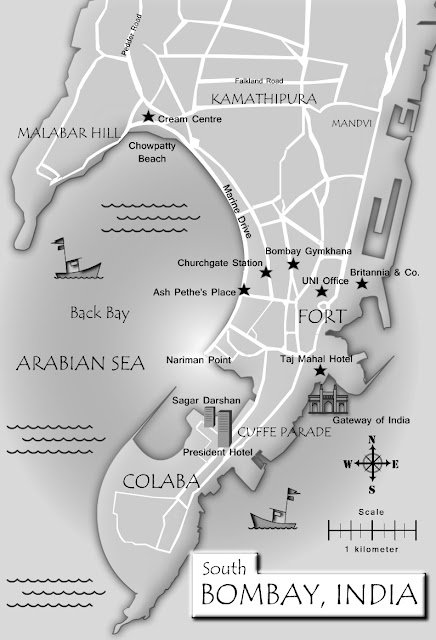This week’s question is actually multiple nested questions, so I’ll break it out into parts…
Q: Have you written about any controversial issues?
Yesterday’s controversial is today’s milk toast. In 2010 when I wrote Out There Bad (Moses McGuire book 2) sex trafficking Russian and Ukrainian girls wasn’t on the mainstream news’ radar. I heard rumors about it while interviewing a Russian stripper, researching Beautiful Naked and Dead (Moses McGuire book 1.) The 3rd and final Moses McGuire novel deals with American girls sex trafficked across state lines, and forced to work as prostitutes. At the time this wasn’t talked about either. Underage prostitutes were treated as criminals, not victims of sexual abuse.
Writing a trilogy depicting sex workers not as femme fatales or hookers with with a heart of gold, but instead as fully human three dimensional characters went against macho hard-boiled stereotypes. The subject matter demanded the Moses books have graphic sex, but those scenes are in no way sexy or erotic. In the first book Moses gets a lap dance, it is a sad harsh scene, transactional and unromantic. This way of looking at sex for sale brought me some great readers and pissed some others off. What made me proudest was when I talked to sex workers who’d read the books, and thought I’d got it right. None of this was meant to be controversial, I wanted to tell the stories from behind the curtain, not the fantasy laden front row.
Q: Have you created controversial characters in your books?
Young Americans is set in the wonderfully fluid 1970’s, San Fransisco Bay area. Although we didn’t use these words then, it was fluid in both romantic orientation and gender identity. Young Americans is a homage to my teen years, my friends and our glitter rock world.
One of my all time favorite characters is Valentina Creamarosa - the patron saint of fabulousness. Six foot two inches of drool inducing Tina Turner sexiness. In her past she was known as Henry, a US Marine. A trained killer, who honed her skills in Vietnam. Valentina is based on two women I knew from a San Francisco club called The City. I received an angry review from a reader who said because she has a love affair with one of the young men, Valentina is a predator and should have been arrested. Oddly - few people complain about violence or other mayhem but write about sex, and oh my god people run searching for pearls to clutch.
Timing made Valentina controversial, today Loki on Disney Plus is gender fluid and no one freaks. I didn’t write Valentina to be controversial. But to tell that story and exclude her would have been false and a damn shame.
Do you raise issues of conscience or do you steer away from moral questions?
I write worlds that are honest to what I’ve seen and what I discover in research. I saw a review of Tricky, that said it was “written for people that want to defund the police.” Forgetting the fact that that term wasn’t being used when I wrote it, and that I actually do think we need to reallocate the way we spend our city budgets, none of that was what the book was about. It was about characters, and the most interesting characters are always the ones dealing with moral questions/conflicts. For Detective Madsen, the easy move would be to railroad Cisco, whom he believes may be guilty. But morally, he knows his job is to discover the truth, convenient or not. At the same time, Cisco, if he’s to be believed, has a past he doesn’t remember but must come to grips with if he is to move forward.
None of this is new or wildly brave, it is what storytellers have been doing since the dawn of time. Norse mythology is full of flawed characters and complex morality. Thor says at one point, the first person he suspects when evil is done, is Loki. And the first person he goes to when he needs wise, intelligent council is Loki.
***
Ok, so that answers our weekly question. I hope I’ve earned your indulgence for a moment…
This week Lucy our beloved Chocolate Lab left us, no, um passed away, no… I’m struggling to stay away from euphemisms, it’s difficult. I want to say, I held her while she was put to sleep, but the truth was I held her while the doctor injected her and she died peacefully in my arms, head on my chest while I cried big ugly tears.
Lucy was silly and brave, and lived a long good life. She came to us as our son’s dog, when he left, she stayed. For fourteen of her fifteen and a half years she was a member of our family. She trained our puppies and kittens, modeling how proper animals behaved. If they played too rough, she’d pin them with her mouth until they stopped acting wild.
Over the last year her body started breaking down. Finally last week it became clear she wasn’t enjoying life. I was keeping her alive for me, not her, and that wasn’t our deal.
I held her with love and grief as she slipped away. Driving home I remembered our son when he was maybe ten and his hermit crab died. He was deeply sad for a while. Some days later he said, “I think small pets die, so that when grandparents die we’re better at handling it.”
At the time I thought how wise this child is. But as Lucy died I realized — you never get better at grief. Every loss is distinct and personal. I have been struggling with a key moment in the book I’m currently working on. It is about loss. So I’m driving and crying and part of my brain is working. I see the solve — I’m going to give this memory to my protagonist, he will realize that stacking grief upon grief doesn’t diminish or increase it, each is a separate entirely unique experience.
Part of me is living my life, while the writer in me is taking quiet notes. My job — as I see it —is to feel this life fully, and type it as honestly as I can.

























